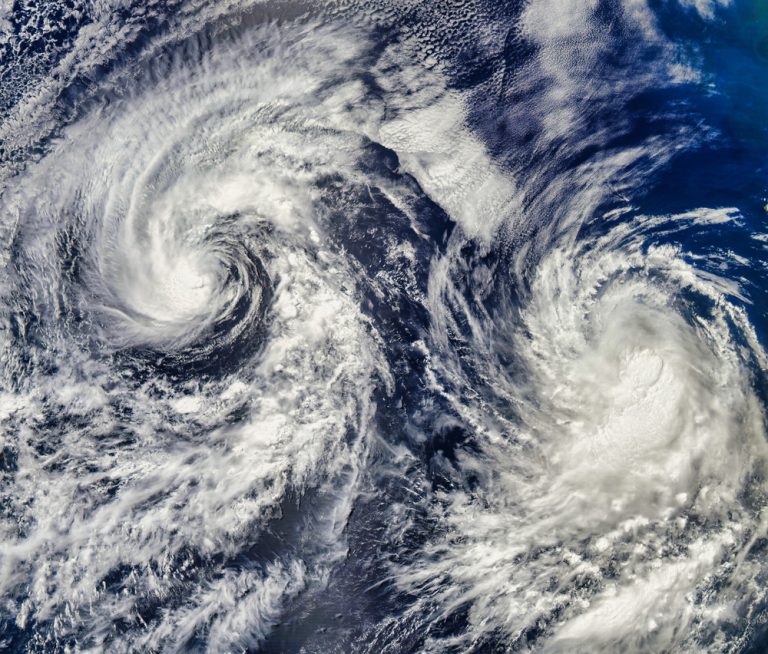Northern Italy is reeling from the impact of Storm Boris, which has triggered catastrophic flooding and landslides in the Emilia-Romagna region. Two people have been reported missing, and nearly 1,000 residents have been evacuated. The devastation is raising concerns about the country’s preparedness for climate-related disasters. The region, which faced similar flooding earlier this year, is struggling to cope with the aftermath, as politicians face criticism for their inaction.
Thousands Flee as Flooding Ravages Emilia-Romagna
The heavy rains from Storm Boris have burst the Lamone River’s banks, causing chaos in the Ravenna province, including the town of Faenza. Schools have closed, roads are blocked, and railway lines have been severely disrupted. Firefighters have carried out over 500 rescue operations, utilizing helicopters to evacuate residents stranded in flooded homes.
“We are in a full emergency … the event is very similar to what we had last May,” said Michele De Pascale, the mayor of Ravenna, referencing the devastating floods that killed 17 people in May 2023. While no fatalities have been reported in this recent flood, the region’s residents are growing increasingly frustrated with the slow progress in building better flood defenses.
Climate Change and Human Failures Behind the Crisis
The flooding in northern Italy is part of a broader trend of extreme weather events driven by climate change. Warmer air holds more moisture, leading to more intense rainfall, which increases the risk of flooding. “My home has once again been destroyed,” lamented a Faenza resident, expressing outrage at the lack of political action. “It’s shameful; the politicians do nothing.”
Italy, a climate hotspot in Europe, has been grappling with extreme weather conditions throughout the year, including heatwaves, droughts, wildfires, and storms. Angelo Bonelli, leader of the left-wing Alleanza Verdi e Sinistra party, pointed out that the government’s response has been inadequate. “There is no will to face the climate crisis,” Bonelli said. “The climate issue must not have a political characterization. Unfortunately, it is an objective fact that we have to deal with.”
Giorgia Meloni’s far-right government has come under fire for its lack of urgency in addressing climate-related disasters. Critics argue that despite the obvious impacts of climate change, the government has been slow to implement meaningful solutions to protect vulnerable regions like Emilia-Romagna. Bonelli called on Meloni to address the Italian parliament and explain the government’s strategy for dealing with the climate crisis.
Amid the mounting criticism, Alice Buonguerrieri, a Meloni’s Brothers of Italy party member, promised action, stating she would file a complaint to determine responsibility for the flooding. Buonguerrieri accused the region’s center-left authorities of only spending €49 million of the €130 million allocated by the government last year for flood defense projects.
Storm Boris Wreaks Havoc Across Europe
Italy is not alone in facing the wrath of Storm Boris. The storm has already devastated several central and eastern European countries, including Poland, the Czech Republic, Romania, and Austria, where a combined total of 24 people have died. Roads, bridges, and railway lines have been destroyed, and entire neighborhoods submerged as governments scramble to manage the crisis.
In Poland, Wrocław braced for swollen rivers to peak, but the city’s flood defenses appeared to be holding. European Commission President Ursula von der Leyen visited the city to announce a €10 billion aid package for regions across Europe affected by the floods. “It was for me … heartbreaking to see the destruction and the devastation,” von der Leyen said after touring Wrocław.
Hungary and Poland Brace for Further Flooding
The Danube River is expected to peak in Budapest by Saturday. Prime Minister Viktor Orbán assured residents that defenses would hold and prevent the worst of the flooding. “We will mount a successful defense against this flood as well,” Orbán declared, signaling Hungary’s readiness to withstand the storm’s impact.
As the storm continues to move across Europe, governments are racing against time to bolster defenses, prevent further destruction, and address the immediate needs of displaced residents. The economic damage is already estimated in the billions, and with more rain forecasted, the situation remains precarious for many affected regions.
The devastation caused by Storm Boris serves as a stark reminder of the urgent need for stronger climate action and better preparedness for extreme weather events. As northern Italy grapples with the aftermath, and other parts of Europe brace for more flooding, the pressure is mounting on leaders like Giorgia Meloni to prioritize climate resilience. While immediate relief efforts are underway, the long-term solution lies in addressing the root causes of these disasters and preparing for the impacts of a changing climate.


